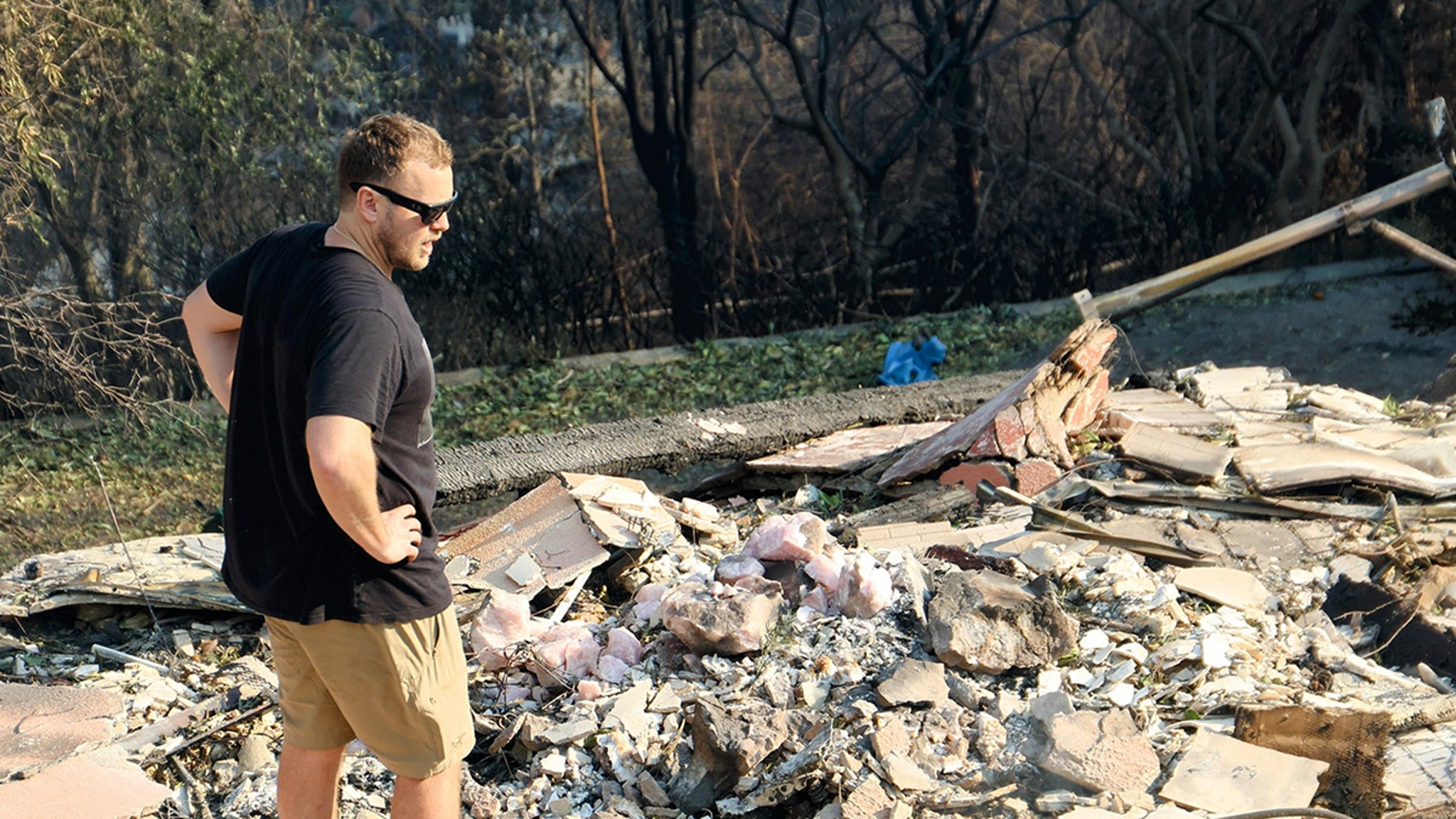Selton Mello and Fernanda Torres have known each other for decades. Mello had a guest arc on Torres’ Brazilian show “Normal People,” which ran from 2001-2003, before achieving massive fame as both an actor and filmmaker. He had also worked with her brother, filmmaker Cláudio Torres, and her mother, legendary actor Fernanda Montenegro — perhaps best-known to American audiences for her Oscar-nominated turn in Walter Salles’ 1998 film “Central Station.” Says Mello, “I literally feel like part of the family.”
Now the pair are playing husband and wife Rubens and Eunice Paiva in Salles’ acclaimed drama “I’m Still Here,” based on the memoir by Marcelo Rubens Paiva. Paiva is a well-known writer in Brazil, and his 1982 autobiography, “Happy Old Year,” details the accident that led to him becoming a tetraplegic. That book also mentions how in 1970, when he was 11 years old, his father, Rubens, disappeared and was presumed murdered by the Brazilian military. “We knew of his father only as a headline,” says Torres. “We knew he had been tortured and killed by the military and the body was never found, but we never knew the full story.”
It wasn’t until 2015, when Paiva published “I’m Still Here,” that the world learned not only the details of his father’s disappearance, but the inspirational story of Eunice, who also survived torture and imprisonment to start a new life with their five children and become a successful attorney and human rights advocate. “It was then I learned that not only was his father this superhero,” says Torres, “but I discovered the journey of his mother, this great heroine.”

“I’m Still Here” is very different material from Mello and Torres’ first collaboration, but the pair have earned raves for their sensitive portrayals since the film premiered in September at the Venice Film Festival, where it won best screenplay. Torres just won a Golden Globe nomination for best actress in a drama, and the film is shortlisted for the international feature Oscar. The film will be released in U.S. cinemas Jan. 15 by Sony Pictures Classics.
Though she had worked with Salles before and her mother was already cast as the elder Eunice, Torres wasn’t his first choice for the part. That might be due to the huge success of her 2011 series “Slaps & Kisses,” in which she played a romantically flawed bridal shop employee. “Of course I’m a drama actress, but I became so well-known for two huge sitcoms,” Torres notes. “I think I did too much comedy for Walter to think about me.” So, when Salles asked her to read the script for “I’m Still Here,” it was as a colleague, not as his potential Eunice. “My mother was already in the film, and he said he wanted my opinion,” says Torres. “It was an amazing script, but I never thought he was going to invite me. Which is good, because there was no tension between us.”
Still, when the director did eventually offer her the role, she admits she wasn’t totally surprised, and happily accepted. And the previous relationship between the two actors and that comedy background came in handy on set. “Fernanda is hysterical,” Mello raves. “She’s super funny, and even with the tragic backstory to this film, she could be hilarious. We could have fun behind the cameras, which is perfect.”
Torres was thrilled that their off-screen chemistry came alive on screen. “Sometimes you don’t know if it will be there, but in this case, it happened,” she says. And because the film was shot chronologically, she was able to use the absence she felt when Mello left the set. “The scene where I come back and he’s gone, I’m really feeling the loss,” she reveals. “I’m touched as an actress and as a character and I think you can [feel] it in the film.”
“When I smile and leave on the screen, I left the film,” Mello recalls. “And they stay in the house, and they miss Rubens, and they miss me. It was a beautiful bond we created with us and with the kids. And Fernanda is the best partner.”

Mello, who has never shot a film in order before, loved the process — and that the rest of the film came as a surprise to him. “I saw the movie like an audience member,” he says. “And when I leave, I see what happens, and I’m shocked and heartbroken.”
Despite the challenging material, Torres says working on the film was a pleasure, largely due to Salles creating an environment that “was almost sacred.” Salles himself had a deep personal connection to the material — as a child he played with the Paiva children and visited the very house depicted in the film. Torres notes that nobody was on their phones on the set, and the young actors playing the Paiva children were usually only told what would be happening in a scene shortly before shooting. “Walter knows the actor is the heart of a scene so he’s so respectful and helpful,” she says. “He created a world, not a set. That house we shot in is a character — it smells like a home, it feels like a home.”
The actors were also inspired by the way that the film, despite detailing a tragedy, is designed to inspire. “I hate movies that you leave feeling worse than when you arrived at the cinema,” says Torres. “It’s tough to see what this family went through, but they survived. And that family created this boy that wrote this beautiful book and the film is a continuation of that family. I think it’s a very hopeful film.”
And it’s a movie that people all over the world have been responding to. It opened at No. 1 in Brazil, besting both “Venom: The Last Dance” and “Red One,” and has played to rhapsodic audiences at festivals worldwide.
Both actors are deeply touched by the way the film has resonated with audiences. When it premiered at the Venice Film Festival and they first saw the response — which included a 10-minute standing ovation — Mello says he had a realization. “I said to Fernanda, ‘Oh my God, this film is the body,’” Mello recalls. “The body that they never found is the film. Because now the justice was done. All the Brazilian people and audiences all over the world [are] watching this film, giving a tribute to him and to her.”

 By Variety | Created at 2025-01-09 18:00:03 | Updated at 2025-01-10 03:08:21
9 hours ago
By Variety | Created at 2025-01-09 18:00:03 | Updated at 2025-01-10 03:08:21
9 hours ago








